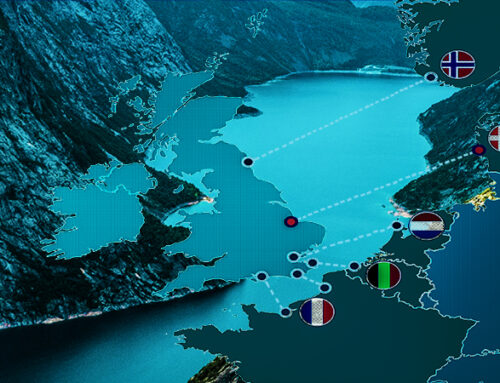Last week saw the publication of a review by Conservative MP John Penrose into how the UK’s approach to competition and consumer issues could be improved, to strengthen consumer protections and stimulate competition.
Penrose has previously called for existing sector-specific regulators such as Ofgem and Ofwat to be abolished, and for a single regulator be created to oversee all utility network functions. In his review he does not go this far, but he would like to see much of their role handed to the Competition & Markets Authority (“CMA”). Essentially, he would like the CMA to become the “micro-economic sibling” to the Bank of England, responsible for tracking competition, consumer rights and productivity improvements.
“We must audit and amend all the sector regulators’ legal duties so they all have a strong, clear ‘competition for the benefit of consumers first, regulation only as a last resort’ primary legal duty,”
– John Penrose MP
All types of businesses are likely to welcome the recommendations to reduce regulatory burdens and the costs of compliance, and the re-introduction of the “gateway” principle where new rules cannot be introduced until the costs and burdens of the old rules have been removed.
The role of the CMA could be significantly expanded….
The report has two primary aspirations – to improve choices and outcomes for consumers, and to reduce regulation.
 The report recommends significant changes to the CMA’s powers and role, including:
The report recommends significant changes to the CMA’s powers and role, including:
- a new Competition Act be introduced to update and modernise institutions for the new digital economy;
- wider civil consumer enforcement powers allowing the CMA to decide cases and impose fines in the same way it already does for competition law cases;
- stronger penalties for procedural breaches;
- greater flexibility to accept legally-binding undertakings at any stage in market studies, market investigations and merger investigations;
- a simplified appeals process; and
- formation of a taskforce to explore streamlining of cases.
Penrose would also like to see some de-centralisation of the CMA’s functions, through the creation of fast-track Competition Courts for local and regional cases as well as a greater role for local authority trading standards teams.
The report includes some specific recommendations around the digital world. Penrose is concerned about “regulatory creep”, where anything digital falls within the CMA’s digital unit rather than as part of its normal business. He would like to see the CMA’s digital unit design and enforce a code of conduct covering areas such as data portability schemes to improve switching, service interoperability, and processs to facilitate access to anonymised incumbent data sets where privacy and data protection requirements allow.
Another area of the digital economy which Penrose believes should be better regulated is that for notionally “free” products where a service is offered in exchange for something other than money – often personal data – which companies then use for targeted advertising, or sell on to other companies which use it in similar ways. This industry is worth £14 billion each year in the UK alone, but since consumers do not know the value of their own data, they cannot know whether they are getting value for money in the exchange.
The report contains a number of new consumer protection proposals aiming at giving consumers more power and choice, and to improve overall competition in the market. Penrose calls for stronger consumer protections laws on:
- the so-called “loyalty penalty” where consumers often end up paying more when they stay with their existing supplier than a new customer would pay;
- unfair contractual terms and complexity/poor readability of contracts; and
- mis-use of “nudging” by enticing consumers into making sub-optimal decisions for example by creating a false sense of urgency, or by making it hard for them to exit contracts.
“A recent experiment created a fake social networking site with terms and conditions that included giving up your first-born child as payment. 98% of people agreed to this,”
– John Penrose MP
The report also encourages the CMA to update its guidelines on what treating customers fairly means, and to track whether price comparison tools are effective in allowing customers to make reliable and informed choices in digital markets.
…while the roles of sector regulators such as Ofgem would narrow
The CMA and the Competition Appeal Tribunal deal with competition and consumer issues for most of the economy but there are seven industries where nine specialist sector regulators are responsible for the same issues. These are the Civil Aviation Authority, the Financial Conduct Authority, the Northern Ireland Authority for Utility Regulation, the Office of Communications (“Ofcom”), the Office of Rail and Road, the Payment Systems Regulator, NHS Improvement, the Water Services Regulation Authority (“Ofwat”), and of course, Ofgem – the Gas and Electricity Markets Authority. Together these industries account for a quarter of UK GDP.
At the heart of each of these sectors is a network monopoly, such as gas pipes, electricity networks, railway tracks, water and sewage pipes and so on, which convey market power to the owner and hence the ability to exploit suppliers or customers, who are unable to take their business elsewhere. Many of these regulators also have non-economic duties such as ensuring safety standards.
“Outside the network monopolies with their Regulated Asset Bases, there is no inherent reason why most of the rest of each of these sectors shouldn’t become a normally-competitive industry, with the same high standards, strong competition and consumer powers as other parts of our economy,”
– John Penrose MP
Penrose believes that as far as possible, other than in the case of network monopolies, the duties of these sector regulators should be transferred to the CMA, and that each sector regulator should have similar legal duties to have a strong, clear “competition for the benefit of consumers first, regulation only as a last resort” primary legal duty. He accepts that the speed of this transition would vary across the sectors as some, such as financial services, carry “more complex and dangerous” risks to consumers than others.
What might this mean for the energy sector?
The principle of lower regulatory burden and streamlined processes is welcome, but I’m not convinced that Ofgem’s role could be reduced to simply managing regulated network businesses. In some ways this goes against the recent direction of travel where an expansion of Ofgem’s remit to explicitly include de-carbonisation as an objective has been mooted.
The energy sector is complex. At its heart lie regulated network assets, and the need to manage fair access to these assets at a fair cost – the current work on network charging indicates that this work is far from complete, and the energy transition means that it will be difficult to envisage an end-point when the shape of the market is continually changing in response to environmental policy drivers and technological developments.
It is also clear that there are various risks faced by consumers that require specific management. In a normal competitive market, if a business fails, it goes bankrupt and its shareholders lose money, while customers take their business elsewhere.
But in the energy sector consumers cannot afford for there to be a hiatus between a supplier going bust and signing up with a new supplier – they need their gas and electricity to continue to be delivered without interruption. Because of this, Ofgem manages a Supplier of Last Resort process where a competitor is appointed to take over the failed supplier’s customers until they decide to move elsewhere, and this Supplier of Last Resort is able to recover some of the costs of this through a levy on all other suppliers, also administered by Ofgem.
This means that certain costs of business failure incurred by energy suppliers are met by customers through charges on all other suppliers, and the increase in such costs in recent years has led to an increase in barriers to entry in the energy markets to ensure that new entrants have the suitable business processes and financial resources to operate in the market.
 The role of consumers is also changing. Some consumers have invested in their own energy assets such as solar panels, batteries and electric cars, and are interested in using these assets to provide services to the grid for which they would be paid. Owning such assets also reduces their usage of networks, and could lead to them paying a lower share of network costs. At the same time, other consumers lack the resources to make similar investments, and could therefore be left with a disproportionate share of those network costs.
The role of consumers is also changing. Some consumers have invested in their own energy assets such as solar panels, batteries and electric cars, and are interested in using these assets to provide services to the grid for which they would be paid. Owning such assets also reduces their usage of networks, and could lead to them paying a lower share of network costs. At the same time, other consumers lack the resources to make similar investments, and could therefore be left with a disproportionate share of those network costs.
An important part of Ofgem’s role is not just to ensure markets are competitive and suppliers are not “ripping-off” consumers, but that vulnerable consumers are not disadvantaged as a result of their vulnerability. This is because, unlike in other sectors, consumers are not independent entities: the choices made by some consumers can have an economic impact on other consumers unless the regulator intervenes to ensure fairness.
In the energy sector, the means of delivering goods (pipes and wires) are not only limited by size (leading to congestion issues) but also by the need to balance supply and demand in real time (which can result in stability and reliability issues). While other industries such as telecoms might face bandwidth challenges, they have no analogy to the real time need for a supply and demand balance: if fewer people decide to make phonecalls at any given time there is no danger of phone systems failing, whereas if electricity demand suddenly and unexpectedly collapsed for a brief period, physical network instability can result.
I suspect that non-network energy regulation as well as financial services will prove difficult to migrate to the CMA, and the sector would be more efficiently regulated if the sector expertise within Ofgem remained in-house rather than moving large numbers of staff as well as responsibilities to the CMA. Creating an energy specialist team within the CMA would have no benefit and would arguably result in worse consumer outcomes.
.
Of course there have been many review of both competition and energy over the years, and a great many recommendations, the vast majority of which have fallen quietly by the wayside. John Penrose has some good general ideas about making regulation less burdensome, and strongly promoting competitiveness, but, as recent experience in the energy sector has illustrated, not all competition is equally desirable, and provider failures can have different customer impacts in different markets. There is much that can be criticised in the functioning of retail energy markets in particular, but it is unlikely that migrating Ofgem’s economic powers to the CMA would be to the benefit of consumers particularly while the energy transition is ongoing.






Penrose seems confused. It was Ed Miliband’s 2010 Energy Act that subverted the purpose of OFGEM into giving primacy to green interests over consumer interests. That’s why it is presently headed by a co-drafter of the Climate Change Act. Ever since that mandate they have developed ever more Byzantine methods for entrenching green interest over consumer interest in ways that will take a deal of unravelling if it is ever attempted before the whole pack of cards collapses. With a Carrie on to Net Zero government it won’t be attempted.